Winner
-
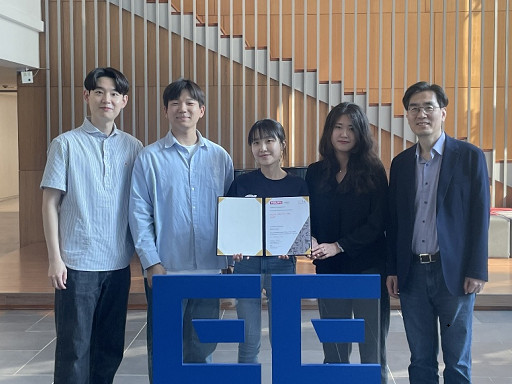 Professor Hyun Myung's Team Wins First Place in a Challenge at ICRA by IEEE
< Photo 1. (From left) Daebeom Kim (Team Leader, Ph.D. student), Seungjae Lee (Ph.D. student), Seoyeon Jang (Ph.D. student), Jei Kong (Master's student), Professor Hyun Myung >
A team of the Urban Robotics Lab, led by Professor Hyun Myung from the KAIST School of Electrical Engineering, achieved a remarkable first-place overall victory in the Nothing Stands Still Challenge (NSS Challenge) 2025, held at the 2025 IEEE International Conference on Robotics and Automation (ICRA), the world's most prestigious robotics conference, from May 19 to 23 in Atlanta, USA.
The NSS Challenge was co-hosted by HILTI, a global construction company based in Liechtenstein, and Stanford University's Gradient Spaces Group. It is an expanded version of the HILTI SLAM (Simultaneous Localization and Mapping)* Challenge, which has been held since 2021, and is considered one of the most prominent challenges at 2025 IEEE ICRA.*SLAM: Refers to Simultaneous Localization and Mapping, a technology where robots, drones, autonomous vehicles, etc., determine their own position and simultaneously create a map of their surroundings.
< Photo 2. A scene from the oral presentation on the winning team's technology (Speakers: Seungjae Lee and Seoyeon Jang, Ph.D. candidates of KAIST School of Electrical Engineering) >
This challenge primarily evaluates how accurately and robustly LiDAR scan data, collected at various times, can be registered in situations with frequent structural changes, such as construction and industrial environments. In particular, it is regarded as a highly technical competition because it deals with multi-session localization and mapping (Multi-session SLAM) technology that responds to structural changes occurring over multiple timeframes, rather than just single-point registration accuracy.
The Urban Robotics Lab team secured first place overall, surpassing National Taiwan University (3rd place) and Northwestern Polytechnical University of China (2nd place) by a significant margin, with their unique localization and mapping technology that solves the problem of registering LiDAR data collected across multiple times and spaces. The winning team will be awarded a prize of $4,000.
< Figure 1. Example of Multiway-Registration for Registering Multiple Scans >
The Urban Robotics Lab team independently developed a multiway-registration framework that can robustly register multiple scans even without prior connection information. This framework consists of an algorithm for summarizing feature points within scans and finding correspondences (CubicFeat), an algorithm for performing global registration based on the found correspondences (Quatro), and an algorithm for refining results based on change detection (Chamelion). This combination of technologies ensures stable registration performance based on fixed structures, even in highly dynamic industrial environments.
< Figure 2. Example of Change Detection Using the Chamelion Algorithm>
LiDAR scan registration technology is a core component of SLAM (Simultaneous Localization And Mapping) in various autonomous systems such as autonomous vehicles, autonomous robots, autonomous walking systems, and autonomous flying vehicles.
Professor Hyun Myung of the School of Electrical Engineering stated, "This award-winning technology is evaluated as a case that simultaneously proves both academic value and industrial applicability by maximizing the performance of precisely estimating the relative positions between different scans even in complex environments. I am grateful to the students who challenged themselves and never gave up, even when many teams abandoned due to the high difficulty."
< Figure 3. Competition Result Board, Lower RMSE (Root Mean Squared Error) Indicates Higher Score (Unit: meters)>
The Urban Robotics Lab team first participated in the SLAM Challenge in 2022, winning second place among academic teams, and in 2023, they secured first place overall in the LiDAR category and first place among academic teams in the vision category.
2025.05.30 View 4894
Professor Hyun Myung's Team Wins First Place in a Challenge at ICRA by IEEE
< Photo 1. (From left) Daebeom Kim (Team Leader, Ph.D. student), Seungjae Lee (Ph.D. student), Seoyeon Jang (Ph.D. student), Jei Kong (Master's student), Professor Hyun Myung >
A team of the Urban Robotics Lab, led by Professor Hyun Myung from the KAIST School of Electrical Engineering, achieved a remarkable first-place overall victory in the Nothing Stands Still Challenge (NSS Challenge) 2025, held at the 2025 IEEE International Conference on Robotics and Automation (ICRA), the world's most prestigious robotics conference, from May 19 to 23 in Atlanta, USA.
The NSS Challenge was co-hosted by HILTI, a global construction company based in Liechtenstein, and Stanford University's Gradient Spaces Group. It is an expanded version of the HILTI SLAM (Simultaneous Localization and Mapping)* Challenge, which has been held since 2021, and is considered one of the most prominent challenges at 2025 IEEE ICRA.*SLAM: Refers to Simultaneous Localization and Mapping, a technology where robots, drones, autonomous vehicles, etc., determine their own position and simultaneously create a map of their surroundings.
< Photo 2. A scene from the oral presentation on the winning team's technology (Speakers: Seungjae Lee and Seoyeon Jang, Ph.D. candidates of KAIST School of Electrical Engineering) >
This challenge primarily evaluates how accurately and robustly LiDAR scan data, collected at various times, can be registered in situations with frequent structural changes, such as construction and industrial environments. In particular, it is regarded as a highly technical competition because it deals with multi-session localization and mapping (Multi-session SLAM) technology that responds to structural changes occurring over multiple timeframes, rather than just single-point registration accuracy.
The Urban Robotics Lab team secured first place overall, surpassing National Taiwan University (3rd place) and Northwestern Polytechnical University of China (2nd place) by a significant margin, with their unique localization and mapping technology that solves the problem of registering LiDAR data collected across multiple times and spaces. The winning team will be awarded a prize of $4,000.
< Figure 1. Example of Multiway-Registration for Registering Multiple Scans >
The Urban Robotics Lab team independently developed a multiway-registration framework that can robustly register multiple scans even without prior connection information. This framework consists of an algorithm for summarizing feature points within scans and finding correspondences (CubicFeat), an algorithm for performing global registration based on the found correspondences (Quatro), and an algorithm for refining results based on change detection (Chamelion). This combination of technologies ensures stable registration performance based on fixed structures, even in highly dynamic industrial environments.
< Figure 2. Example of Change Detection Using the Chamelion Algorithm>
LiDAR scan registration technology is a core component of SLAM (Simultaneous Localization And Mapping) in various autonomous systems such as autonomous vehicles, autonomous robots, autonomous walking systems, and autonomous flying vehicles.
Professor Hyun Myung of the School of Electrical Engineering stated, "This award-winning technology is evaluated as a case that simultaneously proves both academic value and industrial applicability by maximizing the performance of precisely estimating the relative positions between different scans even in complex environments. I am grateful to the students who challenged themselves and never gave up, even when many teams abandoned due to the high difficulty."
< Figure 3. Competition Result Board, Lower RMSE (Root Mean Squared Error) Indicates Higher Score (Unit: meters)>
The Urban Robotics Lab team first participated in the SLAM Challenge in 2022, winning second place among academic teams, and in 2023, they secured first place overall in the LiDAR category and first place among academic teams in the vision category.
2025.05.30 View 4894 -
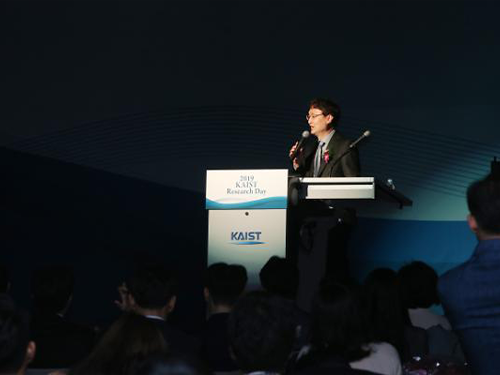 Research Day Highlights Most Outstanding Research Achievements
Professor Byung Jin Cho from the School of Electrical Engineering was selected as the Grand Research Prize Winner in recognition of his innovative research achievement in the fields of nano electric and flexible energy devices during the 2019 KAIST Research Day ceremony held on April 23 at the Chung Kunmo Conference Hall.
The ten most outstanding research achievements from the past year were also awarded in the three areas of Research, Innovation, Convergence Researches.
Professor Cho is an internationally recognized researcher in the field of future nano and energy device technology. Professor Cho’s team has continued to research on advanced CMOS (complementary metal-oxide semiconductors). CMOS has become his key research topic over the past three decades.
In 2014, he developed a glass fabric-based thermoelectric generator, which is extremely light and flexible and produces electricity from the heat of the human body. It is so flexible that the allowable bending radius of the generator is as low as 20 mm. There are no changes in performance even if the generator bends upward and downward for up to 120 cycles. His wearable thermoelectric generator was selected as one of the top ten most promising digital technologies by the Netexplo Forum in 2015.
He now is working on high-performance and ultra-flexible CMOS IC for biomedical applications, expanding his scope to thermal haptic technology in VR using graphene-CMOS hybrid integrated circuits; to self-powered wireless sensor nodes and self-powered ECG system using wearable thermoelectric generators .
In his special lecture at the ceremony, Professor Cho stressed the importance of collaboration in making scientific research and presented how he moved to future devices after focusing on scaling the devices.
“When I started the research on semiconductors, I focused on how to scale the device down as much as possible. For decades, we have conducted a number of procedures to produce tiny but efficient materials. Now we have shifted to develop flexible thermoelements and wearable devices,” said Professor Cho.
“We all thought the scaling down is the only way to create value-added technological breakthroughs. Now, the devices have been scaled down to 7nm and will go down to 5 nm soon. Over the past few years, I think we have gone through all the possible technological breakthroughs for reducing the size to 5nm. The semiconductor devices are made of more 1 billion transistors and go through 1,000 technological processes. So, there won’t be any possible way for a single genius to make a huge breakthrough. Without collaboration with others, it is nearly impossible to make any new technological breakthroughs.”
Professor Cho has published more than 240 papers in renowned academic journals and presented more than 300 papers at academic conferences. He has also registered approximately 50 patents in the field of semiconductor device technology.
The top ten research highlights of 2018 as follows:
- Rydberg-Atom Quantum Simulator Development by Professor Jaewook Ahn and Heung-Sun Sim from the Department of Physics
- From C-H to C-C Bonds at Room Temperature by Professor Mu-Hyun Baik from the Department of Chemistry
- The Role of Rodlike Counterions on the Interactions of DNAs by Professor Yong Woon Kim of the Graduate School of Nanoscience and Technology
- The Medal Preoptic Area Induces Hunting-Like Behaviors to Target Objects and Prey by Professor Daesoo Kim from the Department of Biological Sciences
- Identification of the Origin of Brain Tumors and New Therapeutic Strategy by Professor Jeong Ho Lee from the Graduate School of Medical Science and Engineering
- The Linear Frequency Conversion of Light at a Spatiotemporal Boundary by Professor Bumki Min from the Department of Mechanical Engineering
- An Industrial Grade Flexible Transparent Force Touch Sensor by Professor Jun-Bo Yoon from the School of Electrical Engineering
- The Detection and Clustering of Mixed-Type Defect Patterns in Wafer Bin Maps by Professor Heeyoung Kim from the Department of Industrial and Systems Engineering
- The Development of a Reconfigurable Spin-Based Logic Device by Professor Byong-Guk Park from the Department of Materials Science and Engineering
- The Development of a Miniaturized X-Ray Tube Based on Carbon Nanotube and Electronic Brachytherapy Device by Professor Sung Oh Cho from the Department of Nuclear and Quantum Engineering
Professor YongKeun Park from the Department of Physics and Professor In-Chel Park from the School of Electrical Engineering received the Research Award. For the Innovation Award, Professor Munchurl Kim from the School of Electrical Engineering was the recipient and the Convergence Research Awards was conferred to Professor Sung-Yool Choi from the School of Electrical Engineering, Professor Sung Gap Im from the Department of Chemical and Biomolecular Engineering, and Professor SangHee Park from the Department of Materials Science and Engineering during the ceremony.
For more on KAIST’s Top Research Achievements and Highlight of 2018, please refer to the attached below. click.
2019.04.25 View 18999
Research Day Highlights Most Outstanding Research Achievements
Professor Byung Jin Cho from the School of Electrical Engineering was selected as the Grand Research Prize Winner in recognition of his innovative research achievement in the fields of nano electric and flexible energy devices during the 2019 KAIST Research Day ceremony held on April 23 at the Chung Kunmo Conference Hall.
The ten most outstanding research achievements from the past year were also awarded in the three areas of Research, Innovation, Convergence Researches.
Professor Cho is an internationally recognized researcher in the field of future nano and energy device technology. Professor Cho’s team has continued to research on advanced CMOS (complementary metal-oxide semiconductors). CMOS has become his key research topic over the past three decades.
In 2014, he developed a glass fabric-based thermoelectric generator, which is extremely light and flexible and produces electricity from the heat of the human body. It is so flexible that the allowable bending radius of the generator is as low as 20 mm. There are no changes in performance even if the generator bends upward and downward for up to 120 cycles. His wearable thermoelectric generator was selected as one of the top ten most promising digital technologies by the Netexplo Forum in 2015.
He now is working on high-performance and ultra-flexible CMOS IC for biomedical applications, expanding his scope to thermal haptic technology in VR using graphene-CMOS hybrid integrated circuits; to self-powered wireless sensor nodes and self-powered ECG system using wearable thermoelectric generators .
In his special lecture at the ceremony, Professor Cho stressed the importance of collaboration in making scientific research and presented how he moved to future devices after focusing on scaling the devices.
“When I started the research on semiconductors, I focused on how to scale the device down as much as possible. For decades, we have conducted a number of procedures to produce tiny but efficient materials. Now we have shifted to develop flexible thermoelements and wearable devices,” said Professor Cho.
“We all thought the scaling down is the only way to create value-added technological breakthroughs. Now, the devices have been scaled down to 7nm and will go down to 5 nm soon. Over the past few years, I think we have gone through all the possible technological breakthroughs for reducing the size to 5nm. The semiconductor devices are made of more 1 billion transistors and go through 1,000 technological processes. So, there won’t be any possible way for a single genius to make a huge breakthrough. Without collaboration with others, it is nearly impossible to make any new technological breakthroughs.”
Professor Cho has published more than 240 papers in renowned academic journals and presented more than 300 papers at academic conferences. He has also registered approximately 50 patents in the field of semiconductor device technology.
The top ten research highlights of 2018 as follows:
- Rydberg-Atom Quantum Simulator Development by Professor Jaewook Ahn and Heung-Sun Sim from the Department of Physics
- From C-H to C-C Bonds at Room Temperature by Professor Mu-Hyun Baik from the Department of Chemistry
- The Role of Rodlike Counterions on the Interactions of DNAs by Professor Yong Woon Kim of the Graduate School of Nanoscience and Technology
- The Medal Preoptic Area Induces Hunting-Like Behaviors to Target Objects and Prey by Professor Daesoo Kim from the Department of Biological Sciences
- Identification of the Origin of Brain Tumors and New Therapeutic Strategy by Professor Jeong Ho Lee from the Graduate School of Medical Science and Engineering
- The Linear Frequency Conversion of Light at a Spatiotemporal Boundary by Professor Bumki Min from the Department of Mechanical Engineering
- An Industrial Grade Flexible Transparent Force Touch Sensor by Professor Jun-Bo Yoon from the School of Electrical Engineering
- The Detection and Clustering of Mixed-Type Defect Patterns in Wafer Bin Maps by Professor Heeyoung Kim from the Department of Industrial and Systems Engineering
- The Development of a Reconfigurable Spin-Based Logic Device by Professor Byong-Guk Park from the Department of Materials Science and Engineering
- The Development of a Miniaturized X-Ray Tube Based on Carbon Nanotube and Electronic Brachytherapy Device by Professor Sung Oh Cho from the Department of Nuclear and Quantum Engineering
Professor YongKeun Park from the Department of Physics and Professor In-Chel Park from the School of Electrical Engineering received the Research Award. For the Innovation Award, Professor Munchurl Kim from the School of Electrical Engineering was the recipient and the Convergence Research Awards was conferred to Professor Sung-Yool Choi from the School of Electrical Engineering, Professor Sung Gap Im from the Department of Chemical and Biomolecular Engineering, and Professor SangHee Park from the Department of Materials Science and Engineering during the ceremony.
For more on KAIST’s Top Research Achievements and Highlight of 2018, please refer to the attached below. click.
2019.04.25 View 18999 -
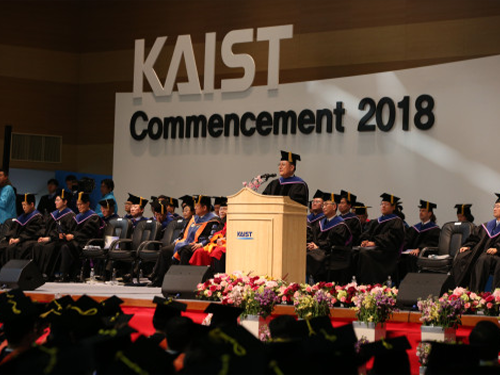 The 2018 Commencement of KAIST at a Glance
KAIST awarded a total of 2, 736 degrees at the 2018 commencement ceremony on February 23. Among the honorees, Chairman and CEO of Samsung Electronics and Samsung Advanced Institute of Technology (SAIT) Oh-Hyun Kwon was recognized as the first alumnus honorary doctorate recipient of KAIST.
More than 5,000 family, friends, and graduates including distinguished guests of Minister of Science and ICT Young-Min Yu, the Member of National Assembly Kyung-Jin Kim, Chairman of the KAIST Board of Trustees Jang-Moo Lee, and the Chairperson of the KAIST Development Foundation Soo-Young Lee attended to celebrate the graduates. During the commencement, a total of 2,736 students earned degrees: 644 PhD degrees, 1,352 master’s degrees, and 740 bachelor’s degrees.
(Minister of Science and ICT Young-Min Yu)
(The Member of National Assembly Kyung-Jin Kim)
This year, Chairman and CEO of Samsung Electronics and SAIT Kwon shared the spotlight with many other graduates. Kwon received his Master’s degree in Electrical Engineering from KAIST in 1977 and completed his Ph.D. in Electrical Engineering from Stanford University in 1985. During his more than 33-year career at Samsung, he has made significant contribution to the development of 4M DRAM and the world’s first 64M DRAM. The success of 4M DRAM and 64 DRAM led Samsung to clinch the top position in the DRAM and NAND flash business around the world. This helped Samsung emerge as a global leader in the semiconductor industry.
(From left: Chairman and CEO of Samsung Electronics and SAIT Oh-Hyun Kwon and KAIST President Sung-Chul Shin)
During the commencement speech, Kwon and President Shin both highlighted the importance of collaboration instead of competition.
Kwon encouraged the graduates to understand others to make wonderful synergy. “When you first notice the true value of another person and interact with them, the value of the individual will be doubled and will bring about a greater impact,” he said.
Also, he stressed having a collaborative mindset by saying, “All of you here, including myself, are people who have benefited from society. We must cooperate with each other and give back to society for the vest results.”
While highlighting the core values of KAIST, creativity, challenge and caring, President Shin also emphasized collaboration with others. He said, “In the future, expertise in a single discipline will not lead to new inventions or discoveries. This highlights the importance of multidisciplinary, convergence research. The key to success lies in the acknowledgement of your peers as partners for mutual growth. Your partners will make up your weak areas and become your most important asset. May you expand your personal network by finding valuable partners not only within your laboratory and workplace, but beyond Korea.”
“Go out into the world and change it as a global shaper, global innovator, and global mover. I hope that each and every one of you will add benefits the world and your legacy will be remembered for generations to come. This is your obligation as a graduate of KAIST,” he said.
Click here to view the full text of President Sung-Chul Shin’s address to the graduates
+ List of academically outstanding undergraduate degree recipients who received honors during the Commencement 2018 of KAIST
Award
Department
Winner
Minister of Science and ICT Award
Dept. of Mathematical Sciences
Seong-Hyeok Park
KAIST Board Chairperson Award
School of Computing
Hyeong-Seok Kim
KAIST President Award
Dept. of Chemistry
Hoi-Min Cheong
KAIST Development Foundation Chairperson Award
Dept. of Biological Sciences
Gi-Song Kim
Dept. of Industrial & Systems Engineering
Seung-Hun Lee
2018.02.23 View 13861
The 2018 Commencement of KAIST at a Glance
KAIST awarded a total of 2, 736 degrees at the 2018 commencement ceremony on February 23. Among the honorees, Chairman and CEO of Samsung Electronics and Samsung Advanced Institute of Technology (SAIT) Oh-Hyun Kwon was recognized as the first alumnus honorary doctorate recipient of KAIST.
More than 5,000 family, friends, and graduates including distinguished guests of Minister of Science and ICT Young-Min Yu, the Member of National Assembly Kyung-Jin Kim, Chairman of the KAIST Board of Trustees Jang-Moo Lee, and the Chairperson of the KAIST Development Foundation Soo-Young Lee attended to celebrate the graduates. During the commencement, a total of 2,736 students earned degrees: 644 PhD degrees, 1,352 master’s degrees, and 740 bachelor’s degrees.
(Minister of Science and ICT Young-Min Yu)
(The Member of National Assembly Kyung-Jin Kim)
This year, Chairman and CEO of Samsung Electronics and SAIT Kwon shared the spotlight with many other graduates. Kwon received his Master’s degree in Electrical Engineering from KAIST in 1977 and completed his Ph.D. in Electrical Engineering from Stanford University in 1985. During his more than 33-year career at Samsung, he has made significant contribution to the development of 4M DRAM and the world’s first 64M DRAM. The success of 4M DRAM and 64 DRAM led Samsung to clinch the top position in the DRAM and NAND flash business around the world. This helped Samsung emerge as a global leader in the semiconductor industry.
(From left: Chairman and CEO of Samsung Electronics and SAIT Oh-Hyun Kwon and KAIST President Sung-Chul Shin)
During the commencement speech, Kwon and President Shin both highlighted the importance of collaboration instead of competition.
Kwon encouraged the graduates to understand others to make wonderful synergy. “When you first notice the true value of another person and interact with them, the value of the individual will be doubled and will bring about a greater impact,” he said.
Also, he stressed having a collaborative mindset by saying, “All of you here, including myself, are people who have benefited from society. We must cooperate with each other and give back to society for the vest results.”
While highlighting the core values of KAIST, creativity, challenge and caring, President Shin also emphasized collaboration with others. He said, “In the future, expertise in a single discipline will not lead to new inventions or discoveries. This highlights the importance of multidisciplinary, convergence research. The key to success lies in the acknowledgement of your peers as partners for mutual growth. Your partners will make up your weak areas and become your most important asset. May you expand your personal network by finding valuable partners not only within your laboratory and workplace, but beyond Korea.”
“Go out into the world and change it as a global shaper, global innovator, and global mover. I hope that each and every one of you will add benefits the world and your legacy will be remembered for generations to come. This is your obligation as a graduate of KAIST,” he said.
Click here to view the full text of President Sung-Chul Shin’s address to the graduates
+ List of academically outstanding undergraduate degree recipients who received honors during the Commencement 2018 of KAIST
Award
Department
Winner
Minister of Science and ICT Award
Dept. of Mathematical Sciences
Seong-Hyeok Park
KAIST Board Chairperson Award
School of Computing
Hyeong-Seok Kim
KAIST President Award
Dept. of Chemistry
Hoi-Min Cheong
KAIST Development Foundation Chairperson Award
Dept. of Biological Sciences
Gi-Song Kim
Dept. of Industrial & Systems Engineering
Seung-Hun Lee
2018.02.23 View 13861 -
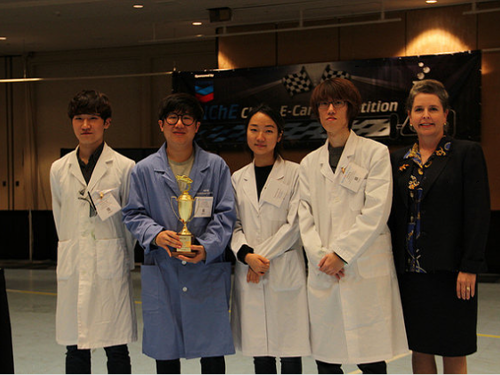 A KAIST Team Wins the Chem-E-Car Competition 2016
A KAIST team consisted of four students from the Department of Chemical and Biomolecular Engineering won the Chem-E-Car Competition 2016, which took place on November 13 at the Union Square in San Francisco. The students who participated were Young-Hyun Cha, Jin-Sol Shin, Dae-Seok Oh, and Wan-Tae Kim. Their adviser was Professor Doh Chang Lee of the same department.
Established in 1999, the Chem-E-Car is an annual worldwide college competition for students majoring in chemical engineering. The American Institute of Chemical Engineers (AIChE), founded in 1908, is the world’s leading organization for chemical engineering professionals with more than 50,000 members from over 100 countries and hosts this competition every year.
A total of 41 university teams including Carnegie Mellon University and Purdue University participated in this year’s competition.
KAIST students competed in the event for the first time in 2014 and reached the rank of 28. In 2015, the students placed 16th, and finally, took the first place in last month’s competition, followed by the Georgia Institute of Technology.
In the competition, students must design small-scale (20x30x40 cm) automobiles that operate chemically, as well as describe their research and drive their car a fixed distance down a wedge-shaped course to demonstrate the car’s capabilities. In addition to driving a specified distance (15-30 meters), the car must hold a payload of 0-500 mL of water.
The organizers tell participants the exact distance and amount of payloads one hour before the competition begins. Winners are chosen based on their finishing time and how close their car reaches the finish line. Thus, students must show sophisticated coordination of chemical reactions to win.
The KAIST team designed their car to have a stable power output using a Vanadium redox flow battery developed by Professor Hee Tak Kim of Chemical and Biomolecular Engineering. They employed iodine clock reactions to induce quick and precise chemical reactions to control their car.
KAIST’s car finished with the best run coming within 11 cm of the target line; Georgia Tech’s car reached the finish line by 13 cm and New Jersey Institute of Technology’s car by 14 cm.
Young-Hyun Cha, one of the four students, said, “When we first designed our car, we had to deal with many issues such as stalls or connection errors. We kept working on fixing these problems through trial and error, which eventually led us to success.”
For a news article on KAIST’s win at 2016 Chemi-E-Car Competition by AIChE, see the link below:
http://www.aiche.org/chenected/2016/11/koreas-kaist-wins-1st-place-2016-chem-e-car-competition-photos
2016.12.08 View 12881
A KAIST Team Wins the Chem-E-Car Competition 2016
A KAIST team consisted of four students from the Department of Chemical and Biomolecular Engineering won the Chem-E-Car Competition 2016, which took place on November 13 at the Union Square in San Francisco. The students who participated were Young-Hyun Cha, Jin-Sol Shin, Dae-Seok Oh, and Wan-Tae Kim. Their adviser was Professor Doh Chang Lee of the same department.
Established in 1999, the Chem-E-Car is an annual worldwide college competition for students majoring in chemical engineering. The American Institute of Chemical Engineers (AIChE), founded in 1908, is the world’s leading organization for chemical engineering professionals with more than 50,000 members from over 100 countries and hosts this competition every year.
A total of 41 university teams including Carnegie Mellon University and Purdue University participated in this year’s competition.
KAIST students competed in the event for the first time in 2014 and reached the rank of 28. In 2015, the students placed 16th, and finally, took the first place in last month’s competition, followed by the Georgia Institute of Technology.
In the competition, students must design small-scale (20x30x40 cm) automobiles that operate chemically, as well as describe their research and drive their car a fixed distance down a wedge-shaped course to demonstrate the car’s capabilities. In addition to driving a specified distance (15-30 meters), the car must hold a payload of 0-500 mL of water.
The organizers tell participants the exact distance and amount of payloads one hour before the competition begins. Winners are chosen based on their finishing time and how close their car reaches the finish line. Thus, students must show sophisticated coordination of chemical reactions to win.
The KAIST team designed their car to have a stable power output using a Vanadium redox flow battery developed by Professor Hee Tak Kim of Chemical and Biomolecular Engineering. They employed iodine clock reactions to induce quick and precise chemical reactions to control their car.
KAIST’s car finished with the best run coming within 11 cm of the target line; Georgia Tech’s car reached the finish line by 13 cm and New Jersey Institute of Technology’s car by 14 cm.
Young-Hyun Cha, one of the four students, said, “When we first designed our car, we had to deal with many issues such as stalls or connection errors. We kept working on fixing these problems through trial and error, which eventually led us to success.”
For a news article on KAIST’s win at 2016 Chemi-E-Car Competition by AIChE, see the link below:
http://www.aiche.org/chenected/2016/11/koreas-kaist-wins-1st-place-2016-chem-e-car-competition-photos
2016.12.08 View 12881 -
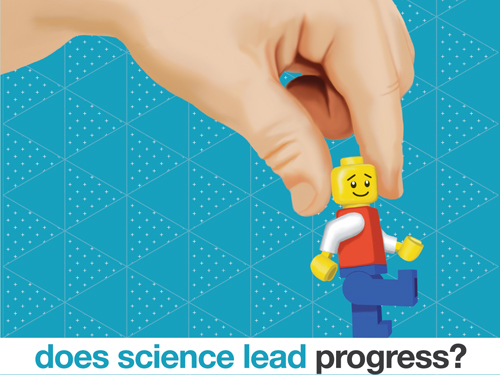 The ICISTS-KAIST International Conference from August 4-8, 2014 in KAIST Campus, Korea
"Does science lead progress?"
This thought-provoking question will be explored this summer with hundreds of university students gathered from all around the world at the campus of the Korea Advanced Institute of Science and Technology (KAIST), a leading science and technology university in Korea.
Established in 2005, the International Conference for Integration of Science, Technology and Society (ICISTS)-KAIST has been hosted every summer for Korean and international university students in Daejeon, Republic of Korea. The conference features distinguished speakers from academia, business, and public sectors and enables participants to exchange views, identify issues affecting science and society, and explore possible solutions.
The ICISTS-KAIST is the largest interdisciplinary conference in Asia. It is organized by undergraduate students of KAIST and promotes the idea of a science- and technology-integrated society through international cooperation of college students from diverse backgrounds. Last year alone, about 400 participants from 103 universities in 25 countries attended the conference.
Marking the 10th anniversary, the ICISTS-KAIST International Conference 2014 will scrutinize the fundamental aspect of scientific and technological progress versus social advancement under the theme of "Does Science Lead Progress?"
"We hope that the conference provides students with an interactive platform to look into some of the essential, yet easily neglected, questions such as the purpose of science and technology education in a broader context of social values," said Dong-Yeon Woo, President of Organizing Committee for the ICISTS-KAIST International Conference 2014.
Among keynote speakers are Langdon Winner, a professor of Science and Technology Studies at Rensselaer Polytechnic Institute, Stephen Hilgartner, an associate professor of Science and Technology Studies at Cornell University, and Steve Breyman, an associate professor of Science and Technology Studies at Rensselaer Polytechnic Institute.
Langdon Winner will speak about the fallacy of the public perception that technological innovation leads to social revolution (his presentation is entitled "The Myth of Innovation"). Stephen Hilgartner will present four aspects of the politics of vision in today's science and technology ("Science, Technology, and the Politics of Vision"), and Steve Breyman will talk about the origin of scientific deception, misrepresentation, and prevarication ("The Agnotology of Hydrofracking").
The conference lasts five days, beginning on August 4th through August 8th, 2014 at KAIST campus. For participation, regular online application opens until July 11, 2014 at http://www.icists.org.
2014.07.04 View 11087
The ICISTS-KAIST International Conference from August 4-8, 2014 in KAIST Campus, Korea
"Does science lead progress?"
This thought-provoking question will be explored this summer with hundreds of university students gathered from all around the world at the campus of the Korea Advanced Institute of Science and Technology (KAIST), a leading science and technology university in Korea.
Established in 2005, the International Conference for Integration of Science, Technology and Society (ICISTS)-KAIST has been hosted every summer for Korean and international university students in Daejeon, Republic of Korea. The conference features distinguished speakers from academia, business, and public sectors and enables participants to exchange views, identify issues affecting science and society, and explore possible solutions.
The ICISTS-KAIST is the largest interdisciplinary conference in Asia. It is organized by undergraduate students of KAIST and promotes the idea of a science- and technology-integrated society through international cooperation of college students from diverse backgrounds. Last year alone, about 400 participants from 103 universities in 25 countries attended the conference.
Marking the 10th anniversary, the ICISTS-KAIST International Conference 2014 will scrutinize the fundamental aspect of scientific and technological progress versus social advancement under the theme of "Does Science Lead Progress?"
"We hope that the conference provides students with an interactive platform to look into some of the essential, yet easily neglected, questions such as the purpose of science and technology education in a broader context of social values," said Dong-Yeon Woo, President of Organizing Committee for the ICISTS-KAIST International Conference 2014.
Among keynote speakers are Langdon Winner, a professor of Science and Technology Studies at Rensselaer Polytechnic Institute, Stephen Hilgartner, an associate professor of Science and Technology Studies at Cornell University, and Steve Breyman, an associate professor of Science and Technology Studies at Rensselaer Polytechnic Institute.
Langdon Winner will speak about the fallacy of the public perception that technological innovation leads to social revolution (his presentation is entitled "The Myth of Innovation"). Stephen Hilgartner will present four aspects of the politics of vision in today's science and technology ("Science, Technology, and the Politics of Vision"), and Steve Breyman will talk about the origin of scientific deception, misrepresentation, and prevarication ("The Agnotology of Hydrofracking").
The conference lasts five days, beginning on August 4th through August 8th, 2014 at KAIST campus. For participation, regular online application opens until July 11, 2014 at http://www.icists.org.
2014.07.04 View 11087 -
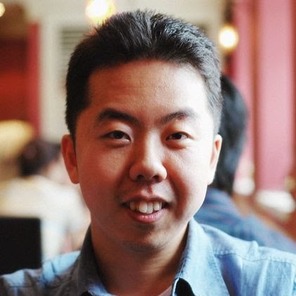 A KAIST graduate named one of seven Microsoft Research Faculty Fellows for 2014
Yong-Yeol Ahn, a professor of the School of Informatics and Computing, Indiana University Bloomington (IUB), has been selected as one of the seven winners for the Microsoft Research Faculty Fellowship 2014. He received his Ph.D. in 2008 from KAIST.
Each year, since 2005, Microsoft Research has recognized innovative, promising new faculty members in computer science from a number of research institutions to join the ranks of Microsoft Research Faculty Fellows. The winners are awarded $200,000 grants to further advance their research.
For details, below please see a press release issued by IUB on June 12, 2014.
IU Bloomington Newsroom
Press Release, June 12, 2014
IU informaticist Y.Y. Ahn named one of seven Microsoft Research Faculty Fellows
http://news.indiana.edu/releases/iu/2014/06/yy-ahn-microsoft-research-faculty-fellow.shtml
2014.06.15 View 9754
A KAIST graduate named one of seven Microsoft Research Faculty Fellows for 2014
Yong-Yeol Ahn, a professor of the School of Informatics and Computing, Indiana University Bloomington (IUB), has been selected as one of the seven winners for the Microsoft Research Faculty Fellowship 2014. He received his Ph.D. in 2008 from KAIST.
Each year, since 2005, Microsoft Research has recognized innovative, promising new faculty members in computer science from a number of research institutions to join the ranks of Microsoft Research Faculty Fellows. The winners are awarded $200,000 grants to further advance their research.
For details, below please see a press release issued by IUB on June 12, 2014.
IU Bloomington Newsroom
Press Release, June 12, 2014
IU informaticist Y.Y. Ahn named one of seven Microsoft Research Faculty Fellows
http://news.indiana.edu/releases/iu/2014/06/yy-ahn-microsoft-research-faculty-fellow.shtml
2014.06.15 View 9754 -
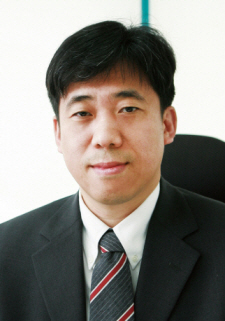 Professor Ki Jun Jeong Selected As the Winner of the 'Young Asian Biotechnologist Prize'
Professor Ki Jun Jeong from the Department of Chemical and Biomolecular Engineering, KAIST, has been selected as the winner of this year’s Young Asian Biotechnologist Prize.
Professor Jeong was invited to the 66th Japan Biotechnology and Bioengineering Society Conference scheduled in September 9th-11th, 2014, in Sapporo, Japan, where his award ceremony will be held.
The award is presented to Professor Jeong in recognition of his outstanding research on microbial-based production of antibodies and efficiency improvement.
The Young Asian Biotechnologist Prize is awarded annually by the Japan Biotechnology and Bioengineering Society to the researchers in Asia under the age of 45, who have achieved excellent research results in the field of bioengineering.
2014.06.14 View 11660
Professor Ki Jun Jeong Selected As the Winner of the 'Young Asian Biotechnologist Prize'
Professor Ki Jun Jeong from the Department of Chemical and Biomolecular Engineering, KAIST, has been selected as the winner of this year’s Young Asian Biotechnologist Prize.
Professor Jeong was invited to the 66th Japan Biotechnology and Bioengineering Society Conference scheduled in September 9th-11th, 2014, in Sapporo, Japan, where his award ceremony will be held.
The award is presented to Professor Jeong in recognition of his outstanding research on microbial-based production of antibodies and efficiency improvement.
The Young Asian Biotechnologist Prize is awarded annually by the Japan Biotechnology and Bioengineering Society to the researchers in Asia under the age of 45, who have achieved excellent research results in the field of bioengineering.
2014.06.14 View 11660 -
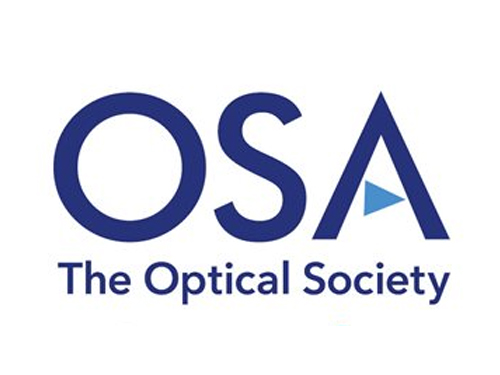 The First Winner of Sang Soo Lee Award in Optics and Photonics
The Optical Society of Korea and the Optical Society of America selected Mario Garavaglia, a researcher at the La Plata Optical Research Center in Argentina, as the first winner of the Sang Soo Lee Award.
Dr. Garavaglia has been selected to receive the award in recognition for his research and education in the field of optics and photonics in Argentina.
The Sang Soo Lee Award, co-established by the Optical Society of Korea and the Optical Society of America in 2012, is awarded to an individual who has made a significant impact in the field. Special considerations are made for individuals who have introduced a new field of research, helped establish a new industry, or made a great contribution to education in the field.
The award is sponsored by the late Doctor Sang Soo Lee's family, the Optical Society of Korea, and the Optical Society of America.
The late Doctor Sang Soo Lee (1925~2010) has been widely known as the 'father of optics' in Korea. He was an active educator, researcher, and writer. Dr. Lee served as the first director of the Korea Advanced Institute of Science (KAIS), the predecessor to KAIST, which was Korea's first research oriented university.
Dr. Lee also served as the 6th president of KAIST between 1989 to 1991 and was a KAIST professor of physics for 21 years. He oversaw the completion of 50 Ph.D. and 100 Master's students as well as published 230 research papers.
Philip Bucksbaum, the president of the Optical Society of America, commented,
"Garavaglia has been an example to the spirit of the Sang Soo Lee Award. The award is the recognition for his tireless efforts and commitment to the development of optics and photonics in Argentina through his teaching, research, and publications."
Jeong-Won Woo, the president of the Optical Society of Korea, said,
"The Sang Soo Lee Award is given to researchers who have consistently contributed to the development of the field. Garavaglia is a well respected researcher in Argentina, and we are truly happy with his selection."
Dr. Garavaglia established a spectroscopy, optic, and laser laboratory in Universidad Nacional de La Plata in 1966. He founded the Center for Optical Research in 1977 and served as the chief of the laboratory until 1991.
Dr. Garavaglia published over 250 research papers in the fields of classical optics, modern optics, photoemission spectroscopy, and laser spectroscopy. He has also received the Galileo Galilei Award from the International Commission for Optics in 1999.
2014.03.31 View 12671
The First Winner of Sang Soo Lee Award in Optics and Photonics
The Optical Society of Korea and the Optical Society of America selected Mario Garavaglia, a researcher at the La Plata Optical Research Center in Argentina, as the first winner of the Sang Soo Lee Award.
Dr. Garavaglia has been selected to receive the award in recognition for his research and education in the field of optics and photonics in Argentina.
The Sang Soo Lee Award, co-established by the Optical Society of Korea and the Optical Society of America in 2012, is awarded to an individual who has made a significant impact in the field. Special considerations are made for individuals who have introduced a new field of research, helped establish a new industry, or made a great contribution to education in the field.
The award is sponsored by the late Doctor Sang Soo Lee's family, the Optical Society of Korea, and the Optical Society of America.
The late Doctor Sang Soo Lee (1925~2010) has been widely known as the 'father of optics' in Korea. He was an active educator, researcher, and writer. Dr. Lee served as the first director of the Korea Advanced Institute of Science (KAIS), the predecessor to KAIST, which was Korea's first research oriented university.
Dr. Lee also served as the 6th president of KAIST between 1989 to 1991 and was a KAIST professor of physics for 21 years. He oversaw the completion of 50 Ph.D. and 100 Master's students as well as published 230 research papers.
Philip Bucksbaum, the president of the Optical Society of America, commented,
"Garavaglia has been an example to the spirit of the Sang Soo Lee Award. The award is the recognition for his tireless efforts and commitment to the development of optics and photonics in Argentina through his teaching, research, and publications."
Jeong-Won Woo, the president of the Optical Society of Korea, said,
"The Sang Soo Lee Award is given to researchers who have consistently contributed to the development of the field. Garavaglia is a well respected researcher in Argentina, and we are truly happy with his selection."
Dr. Garavaglia established a spectroscopy, optic, and laser laboratory in Universidad Nacional de La Plata in 1966. He founded the Center for Optical Research in 1977 and served as the chief of the laboratory until 1991.
Dr. Garavaglia published over 250 research papers in the fields of classical optics, modern optics, photoemission spectroscopy, and laser spectroscopy. He has also received the Galileo Galilei Award from the International Commission for Optics in 1999.
2014.03.31 View 12671 -
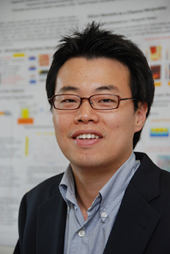 Prof. Park to Receive HP's Annual Innovation Research Award
Prof. In-Kyu Park of the Department of Mechanical Engineering, KAIST, has been will receive an award from Hewlett-Packard"s second annual Labs Innovation Research Program, university authorities said on Wednesday (July 8).
Prof. Park was chosen as the winner of the research award for his paper entitled "Eco-friendly nanomanufacturing for intelligent environment sensing applications."
Sixty projects from 46 universities in 12 countries were selected as the recipients of the awards from HP Labs, the company"s central research arm. The program is designed to create opportunities for colleges, universities and research institutes to conduct collaborative research with HP.
HP Labs Innovation Research Awards provide project funding of up to $100,000 for one year to each of the chosen academic institutions, which is renewable for up to three years based on research progress and HP business requirements.
Prof. Park has conducted joint researches on nanoimprinting, nanosensors, and nanoelectronics with HP"s Information and Quantum Systems Lab since 2005. Starting from the later half of 2009, he is to receive research grants under the industry-academia cooperation program of the world"s information technology giant firm.
2009.07.09 View 18632
Prof. Park to Receive HP's Annual Innovation Research Award
Prof. In-Kyu Park of the Department of Mechanical Engineering, KAIST, has been will receive an award from Hewlett-Packard"s second annual Labs Innovation Research Program, university authorities said on Wednesday (July 8).
Prof. Park was chosen as the winner of the research award for his paper entitled "Eco-friendly nanomanufacturing for intelligent environment sensing applications."
Sixty projects from 46 universities in 12 countries were selected as the recipients of the awards from HP Labs, the company"s central research arm. The program is designed to create opportunities for colleges, universities and research institutes to conduct collaborative research with HP.
HP Labs Innovation Research Awards provide project funding of up to $100,000 for one year to each of the chosen academic institutions, which is renewable for up to three years based on research progress and HP business requirements.
Prof. Park has conducted joint researches on nanoimprinting, nanosensors, and nanoelectronics with HP"s Information and Quantum Systems Lab since 2005. Starting from the later half of 2009, he is to receive research grants under the industry-academia cooperation program of the world"s information technology giant firm.
2009.07.09 View 18632 -
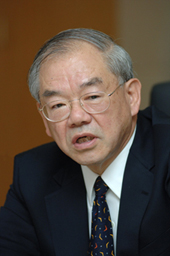 KAIST President Suh Honored with 2009 ASME Medal
KAIST President Nam-Pyo Suh has chosen as the 2009 winner of the ASME Medal presented by the American Society of Mechanical Engineers, university authorities said on Thursday (July 2).
President Suh received the honor for "seminal contributions to the advancement of engineering through research in tribology, polymer processing, metal processing, design and manufacturing, as well as contributions to engineering education and research infrastructure."
The selection of President Suh was unanimously approved by the 13-member Board of Governors of the ASME. Suh became the first scientist of Asian descent in the award"s 89-year-long history.
Founded in 1880, the ASME is a non-profit professional organization promoting the art, science and practice of mechanical and multidisciplinary engineering and allied sciences. The organization is known for setting codes and standards for mechanical devices. As of 2009, it has 120,000 members worldwide.
Only one ASME medal is awarded annually to recognize "eminently distinguished achievement." The award consists of a $17,000 honorarium, a gold medal, certificate and travel supplement for two days. It will be presented to President Suh during the 2009 International Mechanical Engineering Congress and Exposition, which will be held in Lake Buena Vista, Florida, November 13-10, 2009.
President Suh is an internationally known educator, engineer and inventor. Born in Korea, he immigrated to the U.S. in 1954 to join his father, who was teaching at Harvard. He earned both his bachelor"s and master"s degrees from MIT before coming to Carnegie Tech for his doctoral education in mechanical engineering.
While teaching at MIT, he founded the MIT-Industry Polymer Processing Program in 1973 and the Laboratory for Manufacturing and Productivity. He left these positions in 1984 to serve with the U.S. National Science Foundation as its assistant director for engineering, until 1988.
He invented many new materials, products and manufacturing processes, earning more than 60 U. S. patents and founding several companies. He has written seven books and more than 300 scholarly papers. Among dozens of honors throughout his career, President Suh most recently received the 2007 Lifetime Achievement from the Society of Plastics Engineers.
The ASME conducts one of the world"s largest technical publishing operations through its ASME Press, holds numerous technical conferences and hundreds of professional development courses each year, and sponsors numerous outreach and educational programs.
2009.07.02 View 16831
KAIST President Suh Honored with 2009 ASME Medal
KAIST President Nam-Pyo Suh has chosen as the 2009 winner of the ASME Medal presented by the American Society of Mechanical Engineers, university authorities said on Thursday (July 2).
President Suh received the honor for "seminal contributions to the advancement of engineering through research in tribology, polymer processing, metal processing, design and manufacturing, as well as contributions to engineering education and research infrastructure."
The selection of President Suh was unanimously approved by the 13-member Board of Governors of the ASME. Suh became the first scientist of Asian descent in the award"s 89-year-long history.
Founded in 1880, the ASME is a non-profit professional organization promoting the art, science and practice of mechanical and multidisciplinary engineering and allied sciences. The organization is known for setting codes and standards for mechanical devices. As of 2009, it has 120,000 members worldwide.
Only one ASME medal is awarded annually to recognize "eminently distinguished achievement." The award consists of a $17,000 honorarium, a gold medal, certificate and travel supplement for two days. It will be presented to President Suh during the 2009 International Mechanical Engineering Congress and Exposition, which will be held in Lake Buena Vista, Florida, November 13-10, 2009.
President Suh is an internationally known educator, engineer and inventor. Born in Korea, he immigrated to the U.S. in 1954 to join his father, who was teaching at Harvard. He earned both his bachelor"s and master"s degrees from MIT before coming to Carnegie Tech for his doctoral education in mechanical engineering.
While teaching at MIT, he founded the MIT-Industry Polymer Processing Program in 1973 and the Laboratory for Manufacturing and Productivity. He left these positions in 1984 to serve with the U.S. National Science Foundation as its assistant director for engineering, until 1988.
He invented many new materials, products and manufacturing processes, earning more than 60 U. S. patents and founding several companies. He has written seven books and more than 300 scholarly papers. Among dozens of honors throughout his career, President Suh most recently received the 2007 Lifetime Achievement from the Society of Plastics Engineers.
The ASME conducts one of the world"s largest technical publishing operations through its ASME Press, holds numerous technical conferences and hundreds of professional development courses each year, and sponsors numerous outreach and educational programs.
2009.07.02 View 16831 -
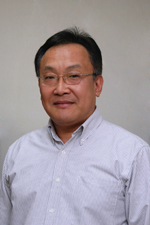 KAIST Prof. Park Selected as Winner of Clemson Award
Professor Tae-Gwan Park of the Department of Biological Sciences, KAIST, was chosen as the winner of the 2009 Clemson Award for Fundamental Research, university authorities said on Tuesday (April 7).
The award is the highest recognition of the Society for Biomaterials, an international organization of more than 3,000 members that promotes research in the field of biomaterials. Prof. Park is cited for his outstanding achievements in interdisciplinary research covering gene transferring, gene therapy and neogenesis. It is rare for a non-U.S. national to win the prize in the 36-year history of the award.
The award will be given to Professor Park at the Annual Meeting of the society which will be held in San Antonio, Texas, on April 22.
2009.04.09 View 15396
KAIST Prof. Park Selected as Winner of Clemson Award
Professor Tae-Gwan Park of the Department of Biological Sciences, KAIST, was chosen as the winner of the 2009 Clemson Award for Fundamental Research, university authorities said on Tuesday (April 7).
The award is the highest recognition of the Society for Biomaterials, an international organization of more than 3,000 members that promotes research in the field of biomaterials. Prof. Park is cited for his outstanding achievements in interdisciplinary research covering gene transferring, gene therapy and neogenesis. It is rare for a non-U.S. national to win the prize in the 36-year history of the award.
The award will be given to Professor Park at the Annual Meeting of the society which will be held in San Antonio, Texas, on April 22.
2009.04.09 View 15396 -
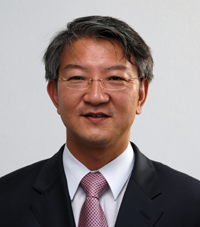 Prof. Sang-Yup Lee Receives Merck Award for Metabolic Engineering
Prof. Sang-Yup Lee of KAIST"s Department of Chemical and Biomolecular Engineering has been chosen as the winner of the 2008 Merck Award for Metabol;ic Engineering established by the world"s leading pharmaceutical and chemical company Merck, KAIST officials said Tuesday, Sept. 16.
The Distinguished Professor of KAIST and LG Chem Chair Professor will receive the award on Sept. 18 during the 7th Metabolic Engineering convention now underway at Puerto Vallarta, Mexico. Prof. Lee will give a commemorative lecture, titled "Systems Metabolic Engineering for Chemicals," at the biannual academic conference. Prof. Lee is the fourth to win the coveted award which is given to the world"s top expert in metabolic engineering with outstanding achievements in the field.
Prof. Lee, 44, who graduated from Seoul National University and earned his master"s and doctoral degrees in chemical engineering from Northwestern University of the United States, is now the dean of the College of Life Science and Bioengineering, KAIST. Since 1994, he has served as the head of the Metabolic and Biomolecular Engineering National Research Laboratory, director of the BioProcess Engineering Center, Director of the Bioinformatics Research Center and Co-Director of the Institute for the BioCentury in KAIST.
Prof. Lee said he was receiving the Merck award "as a representative of KAIST graduates, students and researchers" who have worked with him at the Metabolic Engineering Lab. He added he was happy to see the outcome of bioengineering development projects supported by the Ministry of Education, Science and Technology over the past years was now being recognized by the world"s leading scientific society with the Merck Award.
Metabolic engineering, the art of optimizing genetic and regulatory processes within cells to increase the cell"s production of a certain substance, develops technologies that hold the key to the resolution of the world"s energy, food and environmental problems. The indispensible technology in bioengineering can be applied to the production of biomass to obtain alternative fuel.
Prof. Lee has actively participated in publishing such academic periodicals as Biotechnology Journal (as chief editor), Biotechnology and Bioengineering (deputy editor) and Metabolic Engineering (a member of the editorial committee).
2008.09.17 View 18030
Prof. Sang-Yup Lee Receives Merck Award for Metabolic Engineering
Prof. Sang-Yup Lee of KAIST"s Department of Chemical and Biomolecular Engineering has been chosen as the winner of the 2008 Merck Award for Metabol;ic Engineering established by the world"s leading pharmaceutical and chemical company Merck, KAIST officials said Tuesday, Sept. 16.
The Distinguished Professor of KAIST and LG Chem Chair Professor will receive the award on Sept. 18 during the 7th Metabolic Engineering convention now underway at Puerto Vallarta, Mexico. Prof. Lee will give a commemorative lecture, titled "Systems Metabolic Engineering for Chemicals," at the biannual academic conference. Prof. Lee is the fourth to win the coveted award which is given to the world"s top expert in metabolic engineering with outstanding achievements in the field.
Prof. Lee, 44, who graduated from Seoul National University and earned his master"s and doctoral degrees in chemical engineering from Northwestern University of the United States, is now the dean of the College of Life Science and Bioengineering, KAIST. Since 1994, he has served as the head of the Metabolic and Biomolecular Engineering National Research Laboratory, director of the BioProcess Engineering Center, Director of the Bioinformatics Research Center and Co-Director of the Institute for the BioCentury in KAIST.
Prof. Lee said he was receiving the Merck award "as a representative of KAIST graduates, students and researchers" who have worked with him at the Metabolic Engineering Lab. He added he was happy to see the outcome of bioengineering development projects supported by the Ministry of Education, Science and Technology over the past years was now being recognized by the world"s leading scientific society with the Merck Award.
Metabolic engineering, the art of optimizing genetic and regulatory processes within cells to increase the cell"s production of a certain substance, develops technologies that hold the key to the resolution of the world"s energy, food and environmental problems. The indispensible technology in bioengineering can be applied to the production of biomass to obtain alternative fuel.
Prof. Lee has actively participated in publishing such academic periodicals as Biotechnology Journal (as chief editor), Biotechnology and Bioengineering (deputy editor) and Metabolic Engineering (a member of the editorial committee).
2008.09.17 View 18030